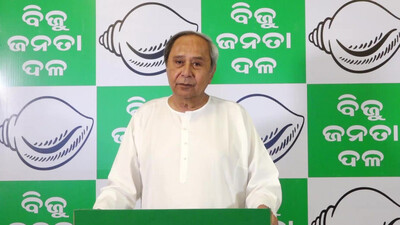Recommended Stories
India`s Permanent Representative to the UN Hardeep Singh Puri termed the development a "game-changer" while his Pakistan counterpart, Abdullah Hussain Haroon said the two countries should not "burn the energies in hate".
As the governments of India and Pakistan take steps to improve economic relations, Puri and Haroon addressed a gathering at Mastercard`s expansive headquarters about 30 miles from New York yesterday. They spoke on the potential of such trade ties for the two countries and the South Asian region.
Mastercard Worldwide`s India-born President and CEO Ajay Banga introduced the two ambassadors. Puri said effectively implementing the Most Favoured Nation (MFN) clause would enable trade and commerce to take place openly and freely. If properly managed, it could really be a "game-changer", he added.
Puri said the current bilateral trade level of 2.6 billion dollars is a "drop in the ocean", adding that it "does not make any sense" that India`s trade with Pakistan is at such a low level when that with its other neighbours Bangladesh and Sri Lanka is much more.
Pakistan is a "very important country, important neighbour", with which trade can be increased in areas like petroleum products, cotton seeds, electricity and IT sector, Puri said.
The political leadership in India and the Pakistani government have now "resolved" to improve trade ties by discussing ways to increase people-to-people contact, the MFN, Foreign Direct Investment and opening more trade routes on the border, Puri said.
He, however, cautioned the two countries have to be "careful" as "there are entities and forces which are not entirely on the same page when it comes to normalisation of trade relations".
"There are demons within and forces outside, we have to keep our fingers crossed, take the necessary administrative actions so that no aberration or derailment takes place (in talks) of the kind that we have experienced in the past which holds us to ransom," Puri added.
Puri`s counterpart, Abdullah Hussain Haroon said his country had intended to have a deep relationship with India but "something went wrong somewhere".
"There were meant to be open borders, open trade and intermixing of people. We believe in Pakistan that perhaps a lot of what we might have lost over time could return with the opening of this relationship," Haroon said.
He said the two countries should not stop talking to each other. "We have to realise that we have to coexist. Why should we burn our energies in hate, dividing ourselves and letting things go to waste. Let us use our resources, try to understand each others` requirements and pool towards them.
"There is potential for us to work together... and when we are sitting one to one we tend to be more realistic with each other. As far as India-Pakistan relation is concerned the more we tailor them to our own understanding the more successful they will be," Haroon said.
Haroon said: "There is a strong interdependence (between the countries) whether we realise it or not. Trade is quintessential to any progress. Time has come that we realise that we have to interact. There are tremendous inter-trade capacities where we might not even have to look to the rest of the world in many ways." He, however, added that there would be a "hate factor" on both sides which cannot be overcome immediately and "it will take time" to address that.
Puri said governments of the two countries can provide only an enabling environment and conformity with multilaterally set norms and standards but trade actually flows when a large number of other issues like non-tariff barriers is also addressed. He said there is some apprehension in Pakistan that normalisation of trade relations with India will lead to flooding of goods from across the border.
Given that Pakistan is a member of the World Trade Organisation, it would have recourse to all trade remedy provisions in the WTO like safeguards and anti dumping clause, he said. Haroon said India and Pakistan possessing nuclear weapons has ensured that "neither of us is going to throw anything at the other. It will be a mutually assured destruction".












